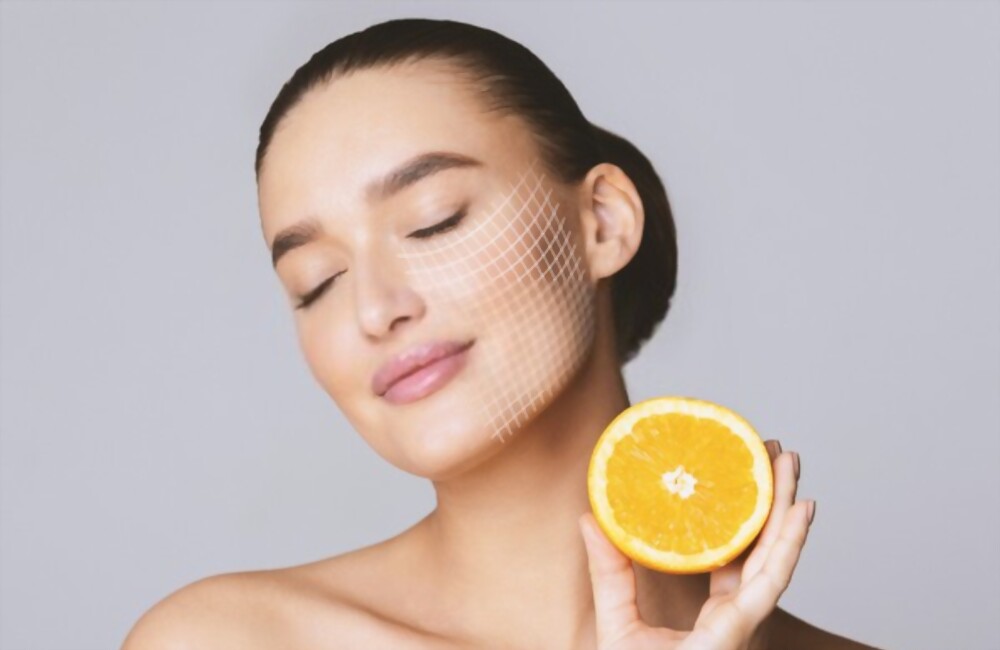Why Vitamin A is Essential for Skin Care
We eat the healthiest diet to stay healthy, but we often forget to care for another integral part of our health (the skin). Healthy foods provide the body with essential nutrients to ensure optimal growth and function. However, we often undermine the importance of some vitamins and minerals in maintaining skin health.
Vitamins are micronutrients crucial for optimal body functions and skin health (1). An essential vitamin that performs excellent roles is Vitamin A. The micronutrient promotes skin, eye, reproductive health, and immune function. The Recommended Dietary Allowance of the vitamin for adults 19 years and older is 900 mcg RAE (retinol activity equivalent) for men (equivalent to 3,000 IU) and 700 mcg RAE for women (equivalent to 2,333 IU).
Forms of vitamin A and their Conversation in the Body
Our diet contains two sources of vitamin A: preformed vitamin A (retinol and retinyl esters) and provitamin A (carotenoids). Preformed vitamin A is present in foods from animal sources and dairy products. Provitamin A (carotenoids) are plant pigments that the body converts into vitamin A in the intestine.
The liver converts carotenoids and retinyl esters to retinol- and then oxidizes to retinal and retinoic acid- which is then transported to cells in the body by the lymphatic system.
Retinol is a fat-soluble and active form of vitamin A. It stimulates the production of new skin cells and has proven to offer anti-aging effects (2). Vitamin A has gained popularity due to its effects on skin health. In an aging-conscious world, you should know the benefits of incorporating vitamin A-rich foods and topical retinoids in your diet and skincare routine.
The Benefits of Vitamin A for Skin Care
Reduces wrinkles and sagging skin
Vitamin A (topical retinoids) stimulates collagen production to reduce the appearance of fine lines and wrinkles. It can also help remove damaged elastin fibers and promote the formation of new blood vessels, which improves skin elasticity and sag. Other benefits include fading age spots and softening rough patches. Although an effective anti-aging ingredient, it takes three to six months of routine use before wrinkles improve—and the best results take six to twelve months.
Reduces hyperpigmentation and sun damage
A diet rich in carotenoids, like beta carotene, can aid in the prevention of cell damage, skin aging, and skin diseases. Carotenoids can also help protect your skin from environmental factors such as pollution and UV radiation, which can impact skin health and appearance.
Retinoids increase the turnover of skin cells. As a result, they can aid in the improvements of hyperpigmentation, age spots, and sunspots, as well as lead to a more even skin tone.
Fights Acne
Topical Retinoids are essential for treating acne in both adolescents and adults. They help exfoliate the skin to shed old and dead skin cells and unclog the pores to prevent pimples. Retinoids deeply penetrate the skin beyond the epidermal level to stimulate collagen and elastin production. This also helps in reducing acne scarring.
Foods rich in Vitamin A
Beta-carotene gives fruits and vegetables distinctive colors and is a precursor to vitamin A. It is good for vision and eye health; beta-carotene helps your eyes adjust in low-light conditions. Vitamin A cannot give you superhuman night vision or cure your reliance on contact lenses. But eating an adequate amount of fruit or vegetables with this vitamin will help your eye health. Common vitamin A food sources are (3):
- Carrots
- Spinach
- Yellow maize
- Papayas
- Spinach
- Mango
- Sweet potatoes
- Fish oil
- Milk
- Egg
- Beef
- Liver
- Red pepper.
For example, mango peels and spinach juice are beneficial to the skin. They contain a high amount of antioxidants which keeps the skin supple and hydrated. Regular consumption will benefit one’s health and the skin.
Topical and prescription retinoids
Retinoids are available in different forms like:
- Creams, serums, and oils formulated to help reduce the appearance of wrinkles
- Moisturizers
- Sunscreen
- Prescription acne treatment
- Over-the-counter acne products.
Considerations
Some side effects of retinoids major are skin irritation and dryness. Doctors often tell you to start with the lowest strength and use it every other day (once or twice a week), and increase it to every day (best applied at night).
Ensure that you wear sunscreen daily because retinoids make your skin sensitive to sunlight. The drugs should be used regularly to maintain the benefits.
Using vitamin A as a Supplement
Most people get enough vitamin A from their diet. However, getting excess preformed vitamin A from supplements or certain medications can cause side effects, including (4):
- Headaches
- Blurred vision
- Weakened bones
- Dizziness
- Liver damage
- Birth defects.
Precautions
Vitamin A can interact with other supplements and medications. Some of the interactions are:
- acitretin (Soriatone), used to treat psoriasis
- bexarotene (Targretin), used to treat the skin effects of T-cell lymphoma
- Orlistat (Alli, Xenical) is a weight loss drug.
It is advisable not to take vitamin A supplements or apply topical vitamin A if you are pregnant or take the above medications (5).









Comments (0)